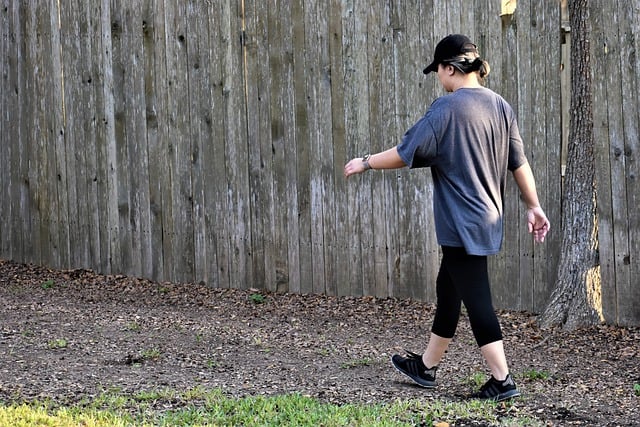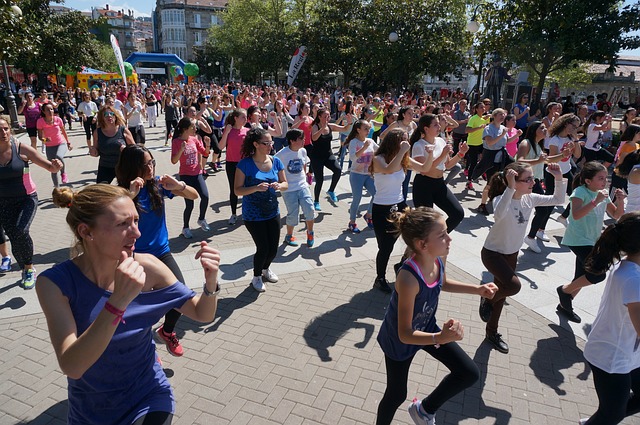When it comes to weight loss, the idea of sweating it out in the gym or following strict diets can be intimidating. However, there is a simple and enjoyable exercise that can aid in shedding pounds and maintaining a healthy weight – walking. Walking is a low-impact, accessible, and effective form of physical activity that can be easily incorporated into your daily routine. In this article, we will explore how regular walking can help you achieve your weight loss goals and lead you on the path to a healthier, more active lifestyle.
The Science Behind Walking for Weight Loss
- Caloric Burn
Walking may seem like a leisurely activity, but it can burn a significant number of calories. The number of calories burned during a walk depends on factors such as speed, distance, and individual body weight. A brisk walk at around 3 to 4 miles per hour can burn approximately 300 to 400 calories in an hour. Consistently burning more calories than you consume is essential for weight loss, and walking can contribute to this calorie deficit.
- Fat Burning
Walking, particularly at a moderate intensity, encourages the body to burn fat for energy. As you walk, your body taps into its fat stores to fuel the activity. Regular walking sessions can increase your body’s ability to utilize fat as an energy source, making it an effective exercise for burning excess body fat.
- Muscle Building
Walking engages various muscle groups, particularly the muscles in your legs, core, and buttocks. While walking may not lead to significant muscle growth like strength training, it helps tone and strengthen the muscles, which can improve your overall body composition and support your weight loss efforts.
- Metabolism Boost
Engaging in regular physical activity like walking can boost your metabolism, which is the rate at which your body burns calories at rest. A higher metabolic rate means that your body is more efficient at burning calories throughout the day, even when you’re not actively exercising.
- Appetite Regulation
Walking can also help regulate appetite and curb cravings. Physical activity has been shown to influence hormones that control hunger, leading to reduced calorie intake. Additionally, the positive mental effects of walking can help manage emotional eating, which is often associated with weight gain.
Tips for Effective Weight Loss Walking
- Set Realistic Goals: Start with achievable goals and gradually increase the intensity and duration of your walks as your fitness level improves.
- Be Consistent: Aim for at least 150 minutes of moderate-intensity walking per week, or 75 minutes of vigorous-intensity walking, spread across several days.
- Mix Up Your Walks: Vary your walking routine by incorporating intervals of brisk walking or uphill walking to challenge your body and increase calorie burn.
- Track Your Progress: Keep a record of your walking sessions, noting the distance, time, and intensity. Tracking your progress can motivate you and help you stay accountable.
- Stay Hydrated: Drink plenty of water before, during, and after your walks to stay hydrated and support your body’s functions.
- Combine with a Balanced Diet: While walking can contribute to weight loss, it’s essential to combine it with a balanced, nutritious diet for optimal results.
Walking for weight loss is a simple, effective, and enjoyable approach to shedding pounds and maintaining a healthy weight. By incorporating regular walks into your daily routine, you can burn calories, boost your metabolism, and improve your overall fitness. Remember, weight loss is a gradual process, and consistent effort, along with a balanced diet, will yield the best results. So, put on your walking shoes, step outside, and embrace this accessible form of exercise to transform your body and embark on a journey towards better health and well-being.
Image by Ray Shrewsberry • from Pixabay
Fitness
-

How to Hydrate Properly for Muscle Health
Proper hydration is crucial for overall health and plays a vital role in supporting muscle function and development. Muscles are composed of a significant amount of water, and maintaining adequate hydration levels is essential for optimizing muscle performance, preventing muscle cramps, and supporting muscle recovery. In this article, we explore the link between hydration and…
-

Try Aerobics for Overall Health, Fitness, and Fun
-

Mindful Running: How to Incorporate Mindfulness and Mental Focus into Your Running Routine
-

Proper Running Form and Techniques – How to Boost Your Performance and Prevent Injuries
-

How to Start Running Today for Health and Fitness
-

Unleashing Your Strength: Exploring Resistance Training and Its Various Types
-

How to Build Muscle Mass – From Strength Training to Protein-Rich Foods









Leave a Reply